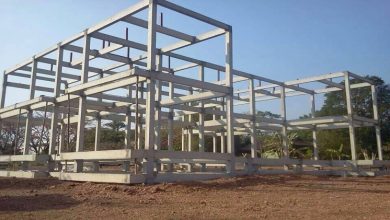The Benefits and Shortcomings of Asphalt Driveways

Asphalt driveways are the most economical and highly popular driveway option. There are good and bad qualities in every driveway material. If you are considering asphalt driveways, then continue reading to learn the benefits and shortcomings of asphalt driveways.
Benefits of Asphalt Driveways
Here are the benefits of asphalt driveways.
1.Cost Effective
The most prevalent benefit that asphalt driveways offer is that it’s a very cost-effective solution. There is a delicate balance between quality and durability against the cost per square foot, with the average price ranging anywhere from $3 to $30 dollars.
When compared to other solutions, you need to dish out a lot more cash for a good-quality driveway. That’s why asphalt driveways is one of the most popular choices for driveway materials.
Things like the size of your driveway, the depth of the asphalt, and any landscaping needed to make the installation possible factor into the final price of the driveway.
2.Durability
Asphalt driveways can handle the weight of heavy vehicles and last a long time. With proper maintenance, it can last even longer. You can ensure that your driveways last a long time by:
- Choosing a quality driveway paving service to do the job
- Regularly cleaning your driveway
- Making sure cars leaking oil don’t get parked on it
- Sealcoating it every 2 to 5 years
- Getting regular repairs when chips and cracks begin appearing
3.Cold Weather Resistance
Unlike other material choices, asphalt is especially suited for cold weather climates. The material can withstand freezing and thawing cycles and resist the damage from ice. Also, asphalt driveways, when laid properly, have great drainage, so Ice can melt and drain without forming puddles in the driveway.
People getting their driveways paved in colder regions can rely on asphalt to survive the tough weather and last a long time. This cold weather resistance makes it a great choice of driveway material.
4.Quick Installation
Asphalt driveways have another perk, which is their quick installation. It is less complicated to install than concrete and cures faster as well. That means it can be applied in less time and used sooner. If you want to use a new driveway sooner, you should choose asphalt for the job.
A driveway can be knocked out in one or two days, and then once you give it the recommended 72 hours to cure, it’s ready to use. All in all, if you’re in a hurry, asphalt is the right idea.
Shortcomings of Asphalt Driveways
Here are the shortcomings of asphalt driveways.
1.Regular Maintenance
One of the biggest shortcomings of asphalt is that if you want it to have a proper lifespan, you must maintain it every few years with a seal coating. Also, you must invest in regular residential asphalt driveway repairs as soon as some cracks start showing so that they don’t grow larger.
Without this regular maintenance, asphalt driveways will chip away and not last as long as they could. To get the most out of your initial investment, you must invest a little more every few years. Even still, it is cost-effective when compared to other materials.
2.Longevity
While asphalt does a great job giving us our value for money in a driveway, compared to other materials, it doesn’t offer the same longevity. Other materials offer decades of use, while asphalt barely manages that much.
However, the price difference between asphalt and these other materials is so much that asphalt plays in its own league. For example, cobblestone driveways can last over a century, but natural stone is remarkably expensive.




